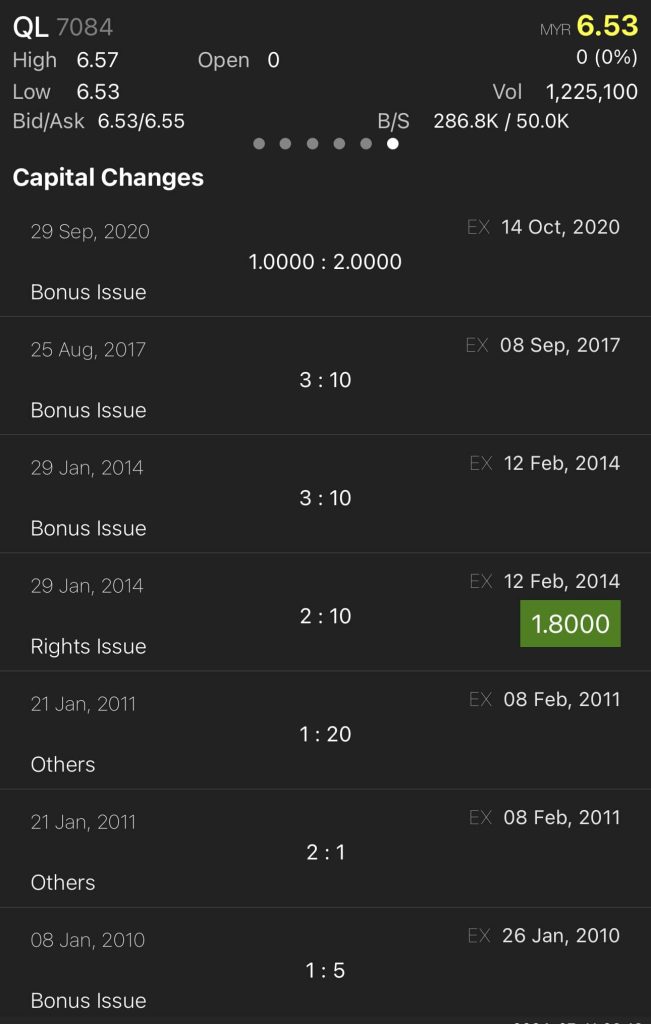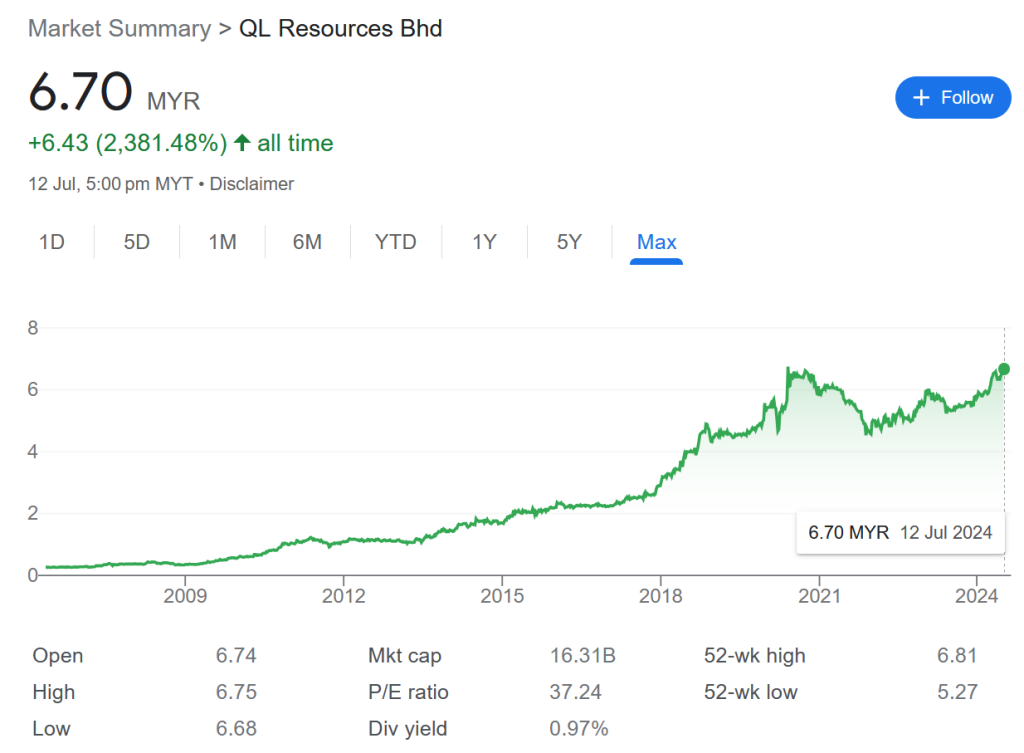Equity Investment – Example (one of) long term strategy

Now, this is what long-term investment in equity can bring. You can see QL Bhd has been regularly giving bonus shares every 3-4 years. It has just announced another bonus issue for this year 2024.

Bonus shares are a concept of slicing the same cake into more pieces. Although some investors argue that this does not reward shareholders, this is not correct.
From a long-term perspective, after bonus issues, the share price will be adjusted downward due to more shares being available to shareholders.
Take an illustration:
If you bought 2,000 shares at RM5 each in 2010 (Invested RM10,000).
If the company gave you a 1:2 bonus issue in 2013, you would have 3,000 shares. If the price in 2013 was RM9 per share before the bonus, your worth of RM18,000 would become RM6 per share for 3,000 shares, and it is still RM18,000.
However, many scenarios can come in:
A. If the company maintains the same dividend payout from improved performance, say at RM0.03 dividend, which was worth RM60.0, it will now be RM90.00.
B. You can sell your 1,000 shares and keep the remaining 2,000. Again, as performance improves, the price will eventually climb from RM6 to RM9. So, you have realized some gain into cash while retaining your capital holding.
C. The best situation is to hold, as there will be further bonus issues. Just like you see what happened to QL. Again, for illustration, imagine the company undertakes a 1 for 2 bonus issue every 3 years. If you keep the shares for 10 years, you will get 3 times bonus. So, the same 2,000 shares you started with will end up as 3,000, then 4,500, then 6,750. And if they consistently improve their performance and the share price continues to grow after the bonus, hypothetically, say they maintain at RM5.00, then the RM10,000 you invested, after 10 years, becomes RM33,750.00, and this is before the dividends you collect every year.
How do we know this is a company like QL?

Well, you need to read and understand the company, assess their business nature, read financial figures, look at their governance, and review their past performance. You need to have knowledge, and you need to apply the knowledge.
You need patience, not the sexy excitement of gambling in the stock market, and many do not have this.
In this investing journey, many will come and celebrate at your peak and say, “If I had known, I would have done that.” But no one will join in the journey when they believe it is a long and boring journey.
This is what about what we learn and what we teach in Professional Accountancy – but is more than that. It is not just the head, but the heart too. Knowledge is a kind of animal, while Application is another kind of animal altogether.
Written by our director, Low Chin Ann
